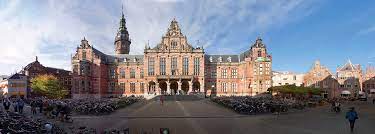University of Groningen: Three young researchers from UG to top institutes abroad on Rubicon grants
Three recent PhD graduates from the University of Groningen will be able to conduct research at top institutes abroad for two years thanks to the Rubicon programme organized by the Netherlands Organisation for Scientific Research (NWO). The NWO Rubicon programme enables talented, young researchers to acquire international research experience to help kick-start their academic careers.
Accepted proposals from University of Groningen researchers:
Disordered paths toward symmetry
Dr. P. (Pedro) Buzón Rodriguez, University of Groningen -> Switzerland -> University of Zurich -> 24 months
Viruses form symmetrical structures without effort—symmetry is achieved spontaneously— like biking downhill. However, the building blocks of viruses start from a mixture of partially disordered blocks—how do they organize themselves? This project will look into the different paths that viruses can take to form their symmetrical structures.
Washing away toxic aggregates from the brain
H. (Hugo) Helbert, PhD, University of Groningen -> United States -> Yale University –> 12 months
The loss of neuronal function in Alzheimer’s disease is caused by aggregates in the brain. A modification of a protein, called protein tau, induces aggregation. Therefore researchers need to undo this modification to restore healthy tau and prevent the formation of toxic aggregates.
A tale of Newton and Schrödinger: Guiding the design of classical models by quantum mechanics
Dr. S. (Selim) Sami, University of Groningen -> United States -> Pitzer Theory Center, University of California, Berkeley -> 24 months
Molecular simulations can improve our understanding of biologically and technologically important materials. The reliability of these simulations, however, depend on the accuracy of the underlying molecular models. The researcher will develop an algorithm that will design detailed models for novel molecules with quantum mechanics as its guide.

